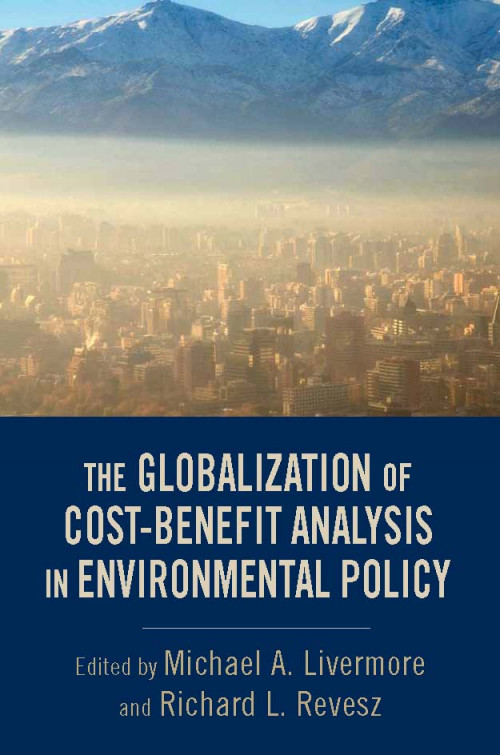-
Comments on Con Edison Storm Hardening and Resilience Collaborative Report
On January 10, Policy Integrity, along with New York University’s Guarini Center, submitted comments on Con Edison’s Storm Hardening and Resilience Collaborative Report. The comments urge New York’s Public Service Commission (PSC) to extend the charter of the cost-benefit analysis working group convened as part of the collaborative process surrounding Con Edison’s latest ratemaking proceeding.
-
_158_115_90.jpg)
Water Pollution and Regulatory Cooperation In China
The costs of China’s record economic growth—including pollution—threaten to undercut its progress if left unchecked. Standing in the way of China’s efforts to control pollution is a complex political system of overlapping levels of local and national authorities. This paper examines recent efforts to address the ill-aligned incentives lead some officials to allow high levels of pollution.
-
Comments On the Social Cost of Carbon in DOE’s Refrigerator Rule
Policy Integrity, along with Environmental Defense Fund, Natural Resources Defense Council, and Union of Concerned Scientists, submitted comments on the social cost of carbon (SCC) within a rule proposed by the Department of Energy regarding energy conservation for commercial refrigeration equipment. The SCC calculation is an estimate of the damage caused by each ton of carbon emissions and used in the cost-benefit analyses of regulations with greenhouse gas emissions reductions.
-
Comments on the Social Cost of Carbon in Metal Halide Lamp Fixtures Rule
Policy Integrity, along with the Environmental Defense Fund, the Natural Resources Defense Council, and the Union of Concerned Scientists, submitted comments on the social cost of carbon. The calculation—an estimate of the damage caused by each ton of carbon emissions—was used in a rule proposed by the Department of Energy regarding energy conservation from metal halide lamp fixtures. The joint comments show that according to cutting-edge economic research, the estimate used by the government may be too low.
-
CEQ Changes to Water Resources Study Reflects Policy Integrity Recommendations
The President’s Council on Environmental Quality (“CEQ”) has implemented several changes to the Proposed National Objectives, Principles and Standards for Water and Related Resources Implementation Studies that are consistent with recommendations Policy Integrity made in comments on the 2009 draft.
-
Revesz’s work on grandfathering cited in Federal Court Case
The U.S. Court of Appeals for the Sixth Circuit, citing Richard Revesz’s work with co-author Jonathan Nash on “grandfathering” power plants, recently reversed a district court order and sided with the EPA in its case against DTE Energy Corp. The court ruled that the Clean Air Act grants the EPA the power to review projections of future emissions resulting from a facility modification without having to wait for data from the completed project.
-
Comments to Chugach National Forest on Revision of its Resource Management Plan
Policy Integrity submitted comments to the Chugach National Forest advocating for the use of cost-benefit analysis in the revision of the forest’s Resource Management Plan. The US Forest Service updated its rule last year on how individual forests should develop their management plans, eliminating an explicit requirement to study the net present value of management alternatives. The forests, though, were left with some discretion, which we think forests like Chugach should use to incorporate cost-benefit analysis into their planning.
-
Winding Down Energy Tax Breaks Wiki
Policy Integrity is winding down its energy tax breaks wiki after over a year of compiling the expertise of lawyers, economists, tax professionals, and concerned citizens to catalog tax breaks received by the fossil and renewable energy industries.
-

The Globalization of Cost-Benefit Analysis in Environmental Policy
The Globalization of Cost-Benefit Analysis in Environmental Policy examines how cost-benefit analysis can help developing and emerging countries confront the next generation of environmental and public-health challenges. Analysis in the book examines the growing reach of cost-benefit analysis; presents relevant case studies where cost-benefit analysis has been incorporated in the Americas, Africa, Middle East, and Asia; and includes a discussion on the conceptual and institutional issues that must be addressed when adopting cost-benefit analysis in developing and emerging countries. By providing both theoretical and practical discussion of this important new tool, this book makes a valuable contribution to the fields of environmental policy, development studies, and environmental law.
-
File Notice of Intent to Sue EPA
Today we submitted a notice of intent to sue EPA for failing to take certain actions to guard against climate change. In 2009, we asked the EPA to limit the carbon emissions that come from mobile sources like cars, boats and planes. The agency did not respond, as it is legally required, so we will now take the next step in notifying them of our intention to sue.
Viewing recent projects in Climate and Energy Policy
